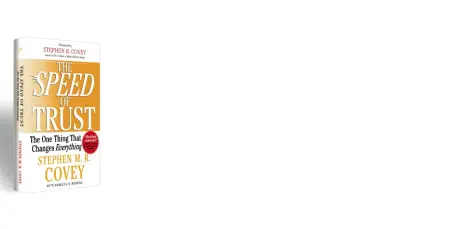
When we think back to our own childhoods, we may remember a parent or teacher teaching us to say sorry and ask for that forgiveness. Then, once we became a little older, we acquired ego within ourselves. Somewhere down the line, we may have stopped righting wrongs within relationships because of these prideful tendencies. That’s why Right Wrongs is such an important thing to look at when it comes to trust in the workplace.
So, let’s figure out how we implement these school-aged values into our adult world.
Taking on Responsibility
I define Right Wrongs as seeking to restore a relationship with someone. It’s taking responsibility and saying “I am at fault for this thing that broke trust in our relationship”. It’s also continuing to right the wrong in the future, learning and growing from the experience.
In order to right wrongs, you have to humble yourself. You have to set your ego aside. Conflict is not always black and white. It’s even harder to right wrongs in this case because we see the faults or mistakes of other people in the situation. We have to take a step back, look at the big picture, and ask “what part did I have in this?”
Workplace Relationships ARE Relationships
Somewhere along the way, we have decided as a society that work and personal life should be separated. People say they have work husbands and wives and tend to treat coworkers differently than they would someone they meet outside of the office. But no matter where a relationship is formed, we need to remember that everyone is a human being and they matter.
I use the example of a minefield to describe how ignoring a conflict and not righting wrongs can cause chaos. When we do not acknowledge our mistakes, trying to forget and ignore what happened, the other person does not necessarily do the same. With this disregard, we place a landmine down.
It may not affect the relationship in the moment or even in the near future. But at some point, either that touchy subject could come up or a similar situation could arise, causing someone to step on that landmine. The blast will have lasting implications.
It’s Not Just Business
I was in a business venture partnership with a few people, including a very dear friend, before I joined Improving. One day I was told they decided to go in a different direction, excluding me from the partnership.
Instead of righting this wrong, I was told “it’s not you, it’s just business”. While I’m guessing they thought this phrase was a pretty good excuse, it was not. They wanted to believe that this career conflict could be separated from our personal relationships. But I was still incredibly hurt, and their decision had a lasting impact on not only my life but my family’s. So yes, I took it very personally.

“It’s just business” is not an excuse to be harsh. It is not an excuse to treat others without respect. Collateral damage happens, no matter if it is a business or personal matter. Be careful not to try and right wrongs by making excuses like this. It will not work, and the minefield will continue to grow.
Another way to manipulate this trust behavior is by using the phrase “I’m sorry, but...” while describing what the other person did that caused us to wrong them. This puts us back in the self-righteous victim role. The apology will not seem genuine and we will be back at square one.
True Trust is Crucial
At this point in my life, I want to work and do life with people who I sincerely trust. Companies can hold all kinds of activities and lectures on trust, but if they do not value and uphold righting wrongs, it is a waste of time. You cannot talk about trust if there is a big list of unresolved issues in the rearview mirror.
So, let’s learn to apologize again like a child, humbly and genuinely. Most people want wholeness in their relationships, so reaching out to right wrongs can go a long way in the workplace. If you would like to learn more about this and other trust behaviors, reach out!


